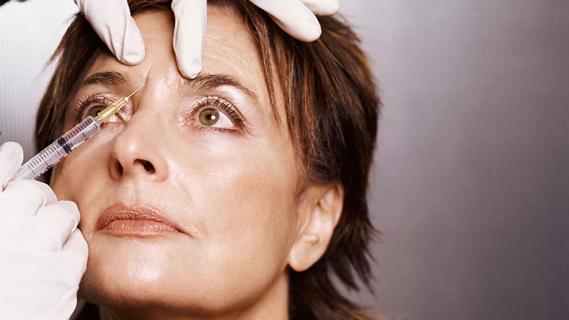The who, what and why of primary ovarian insufficiency

Menopause isn’t something you have to think about until you’re in your 40s and 50s, right?
Advertisement
Cleveland Clinic is a non-profit academic medical center. Advertising on our site helps support our mission. We do not endorse non-Cleveland Clinic products or services. Policy
For most women that’s a true statement. However, for about 1 in 100 women in the U.S., menopause can happen much earlier than expected — even in their 30s or 20s.
When menopause starts before age 40, that’s called primary ovarian insufficiency, says women’s health specialist Pelin Batur, MD. (Previously it was also called premature menopause, or premature ovarian failure.)
During the process of menopause, the ovaries slow down production of estrogen and no longer release eggs every month, so you don’t have your monthly periods. You officially reach menopause when you go 12 consecutive months without a period, indicating that your ovaries are no longer releasing eggs.
A number of factors can cause this to happen earlier than expected in some women, including:
But there isn’t always a reason or explanation. “It pretty frequently happens spontaneously,” Dr. Batur adds.
Women who have POI might experience some combination of missed periods and/or the typical physical symptoms you would expect with menopause. Some women get hot flashes, vaginal dryness and mood changes but still have an occasional period. Others don’t have menopause symptoms but stop having periods.
Advertisement
If either of these are happening to you, Dr. Batur recommends seeing your Ob/Gyn.
“It is unusual for a younger women to have these symptoms, so even if they’re still having cycles we’d still like to take a look,” she says.
Your doctor will want to test the amounts of estradiol (a type of estrogen mostly produced by the ovaries) and follicle-stimulating hormone (a hormone the ovaries need to function) in your blood. They may also want to do a genetic analysis to see if you have any chromosomal abnormalities.
Your doctor might do additional tests to rule out any other conditions that could possibly be causing your symptoms.
If you and your doctor determine that you are experiencing POI, this might feel shocking, sad or frustrating. It’s important to seek emotional support from friends, family or a mental health professional during this time.
Your doctor will work with you to come up with a treatment plan that meets your individual goals and needs. For most women, that plan will include hormone-replacement therapy. Your reproductive hormones support your brain, bones, heart and other tissues, so if your body isn’t producing them, you could be at increased risk of:
Hormone-replacement therapy supplements the body with adequate levels of these hormones. It also helps alleviate symptoms such as hot flashes, sleep disturbances, vaginal dryness and mood changes.
As part of this conversation, your doctor will also ask about your fertility desires.
“If women do want to get pregnant, spontaneous pregnancies can occur,” Dr. Batur says. Women with POI can have intermittent ovulation, which may or may not be accompanied by a menstrual bleed. Other women may be able to get pregnant through in-vitro fertilization with egg donation. It is important to work with a fertility specialist to explore options.
If you do not want to get pregnant while on hormone-replacement therapy, your doctor will talk to you about contraceptive options.
While POI can impact some important aspects of your life, it shouldn’t interrupt your everyday activities. And there are some other things you can do in your day-to-day life to minimize the risk of complications.
“It’s important to make sure that you’re getting adequate amounts of calcium in your diet and talking to your doctor about bone health — maybe even checking vitamin D or doing a bone density test earlier than usual,” Dr. Batur says. “It’s also important to get plenty of exercise and keep your weight in a healthy range to minimize the cardiovascular risks and cognitive changes.”
When menopause starts between the ages of 40 and 45, it’s considered early menopause. This is much more common than POI, Dr. Batur says, and it may or may not warrant treatment. But, it’s still recommended that you see your Ob/Gyn if you have symptoms of menopause before age 45.
Advertisement
Advertisement
Learn more about our editorial process.
Advertisement

Bleeding is a risk and warrants taking care, but the reward of this lifesaving medication is great

Severe and debilitating headaches can affect the quality of your child’s life

With repeat injections over time, you may be able to slow the development of new wrinkles

Although it can be alarming, it’s normal to experience blood clots during menstruation

Stretch before heading outside, keep proper form and avoid jerking or twisting to throw snow

Type 2 diabetes isn’t inevitable with these dietary changes

Applying a hot or cold compress can help with pain